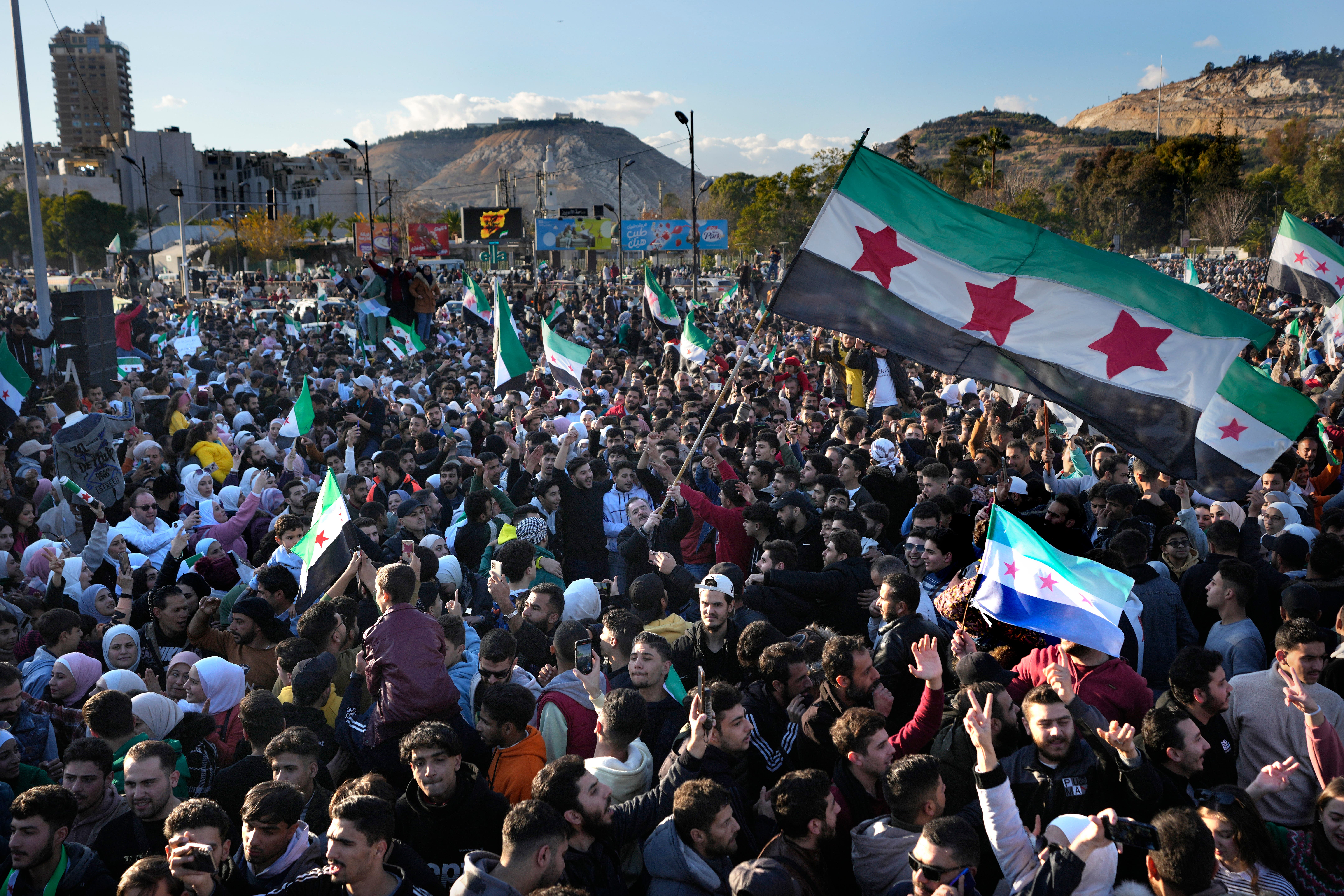Starmer urges G7 to be ‘cautious’ about next steps in Syria
The G7 leaders again stressed the importance of respecting Syria’s territorial integrity after the overthrow of Bashar Assad.

Your support helps us to tell the story
From reproductive rights to climate change to Big Tech, The Independent is on the ground when the story is developing. Whether it's investigating the financials of Elon Musk's pro-Trump PAC or producing our latest documentary, 'The A Word', which shines a light on the American women fighting for reproductive rights, we know how important it is to parse out the facts from the messaging.
At such a critical moment in US history, we need reporters on the ground. Your donation allows us to keep sending journalists to speak to both sides of the story.
The Independent is trusted by Americans across the entire political spectrum. And unlike many other quality news outlets, we choose not to lock Americans out of our reporting and analysis with paywalls. We believe quality journalism should be available to everyone, paid for by those who can afford it.
Your support makes all the difference.The Prime Minister has urged G7 leaders to show caution in Syria following the overthrow of Bashar Assad.
Sir Keir Starmer told a meeting of the G7 leaders on Friday that “the fall of (Bashar) Assad’s brutal regime should be welcomed but we must be cautious about what comes next”, according to a Downing Street spokesperson.
The spokesperson added that the safety of the Syrian people should be a “priority” along with supporting a peaceful transition to a “credible, inclusive and non-sectarian” government.
The leaders again stressed the importance of respecting Syria’s “territorial integrity, independence and sovereignty”, the spokesperson concluded.
Friday’s virtual meeting came less than a week after the collapse of Mr Assad’s regime following a lightning offensive by rebel group Hayat Tahrir al-Sham (HTS).
Since then, Western governments have debated how to deal with HTS, which is a proscribed organisation in the UK because of its closeness to al Qaida, although its current leader Ahmad al-Sharaa, who had used the alias Mohammed al-Golani before taking power, has attempted to distance his movement from the terrorist group.
There is also concern that a power vacuum in Syria could exacerbate regional tensions and create conditions for the Islamic State group to regain ground.
In a statement on Thursday, the G7 leaders said they were committed to “work with and fully support” a future Syrian government that agreed to ensure “respect for the rule of law, universal human rights, including women’s rights, the protection of all Syrians, including religious and ethnic minorities, transparency and accountability”.
Meanwhile, Israeli troops have pushed into Syria and bombed targets across the country, with the government in Tel Aviv saying it is attempting to secure its border after the collapse of the Assad regime and prevent weapons falling into the wrong hands.